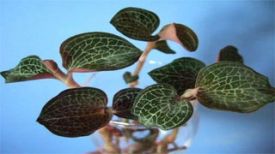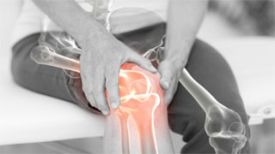
Miss Wang is quite busy with work and often stays up late into the morning, resulting in insufficient sleep. Recently, I heard from a colleague that drinking a glass of water before bedtime can improve sleep and reduce the harm caused by staying up late. Miss Wang thought to herself, 'Isn't this tailor-made for me?'
A month later, Miss Wang came to the nephrology department with a more exhausted body and "panda eyes". Doctor, I have been waking up at night every day to go to the bathroom for the past month and I feel very tired. The internet says that waking up all night and feeling physically tired is a sign of kidney disease. Do I have kidney disease
Nocturia may not necessarily be a disease
Nocturia refers to one or more episodes of urination during the night, with the interruption of sleep. Morning urination and bedtime urination are not included. Increased nocturia can affect the quality of life and sleep, and in severe cases can lead to fatigue, decreased attention, memory loss, emotional disorders, and decreased energy. For elderly people who urinate frequently at night, they are also prone to accidental falls caused by going to the bathroom in the dark.
There are many reasons that can lead to increased nocturia, including physiological and pathological factors, often resulting from multiple overlapping factors.
Physiological polyuria: Common causes include consuming large amounts of fluids (such as water, coffee, alcohol, etc.) before bedtime, or eating too salty. Therefore, when nocturia increases, it may not necessarily be caused by illness, but may also be due to drinking water before bedtime. In addition, high mental stress and poor sleep can also cause increased nighttime urination.
Pathological polyuria: mainly caused by kidney disease, urinary tract infection and diabetes.
Massage three acupoints to improve nocturia
Traditional Chinese medicine believes that the main pathogenesis of nocturia is insufficient kidney yang and deficiency of kidney qi. The "Treatise on the Origin and Symptoms of Various Diseases: Various Symptoms of Urinary Diseases" states: "When urinating, both the bladder and kidneys are deficient, which is due to the interaction of external heat. The kidneys and bladder are the exterior and interior, both of which are responsible for water flow, and the kidney qi flows downwards through the yin. These two meridians are deficient, which leads to the reception of external heat. Deficiency cannot control water flow, so if the urine is hot, the water flow will be astringent, and astringency will cause the urine to be slow, so counting is necessary
Many people who urinate frequently at night are also accompanied by symptoms such as physical weakness, fear of cold, easy fatigue, soreness and pain in the waist and knees, shortness of breath and fatigue, all of which are related to insufficient kidney yang in the body. Massaging the Zhongji acupoint, Zusanli acupoint, and Zhaohai acupoint can regulate kidney yang deficiency and improve the problem of nocturia.
Zhongji acupoint
Positioning: Zhongji acupoint belongs to the Ren meridian and is a recruitment acupoint for the bladder. In the lower abdomen, on the anterior midline, when the navel is 4 inches below.
Effect: Tonify kidney qi, promote bladder function, clear dampness and heat.
Operation: Use both index and middle fingers alternately to knead the Zhongji acupoint for 3-5 minutes, preferably with local soreness and swelling. Moxibustion of this acupoint is better, especially suitable for those with spleen and kidney yang deficiency.
Zusanli acupoint
Positioning: Zusanli acupoint is the combined acupoint of Zuyangming Stomach Meridian. On the outer side of the calf, 3 inches below the calf nose acupoint, the calf nose acupoint is connected to the Jiexi acupoint.
Effect: Nourish the spleen and stomach, transform qi and blood.
Operation: Use both thumbs and fingertips to massage the Zusanli acupoint on both sides for 3-5 minutes, preferably with local soreness and swelling.
Zhaohai Cave
Positioning: Zhaohai acupoint belongs to the Foot Shaoyin Kidney Meridian and is a point where the eight meridians intersect. On the inner side of the foot, below the tip of the medial malleolus, there is a depression.
Effect: Nourish yin and calm the mind, regulate the throat and meridians.
Operation: Use both thumbs and fingertips to massage the bilateral Zhao Hai acupoint for 3-5 minutes, preferably with local soreness and swelling.


